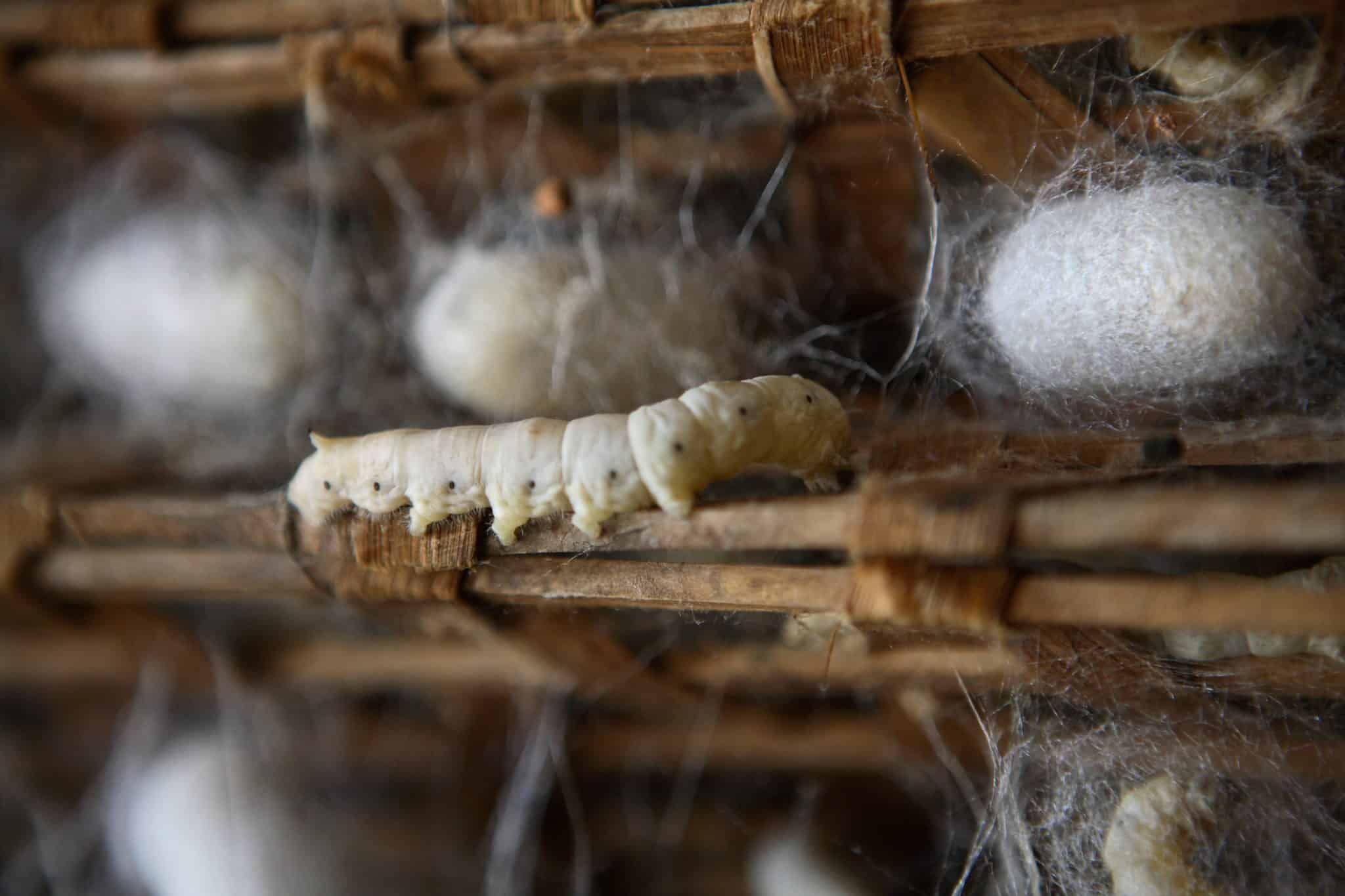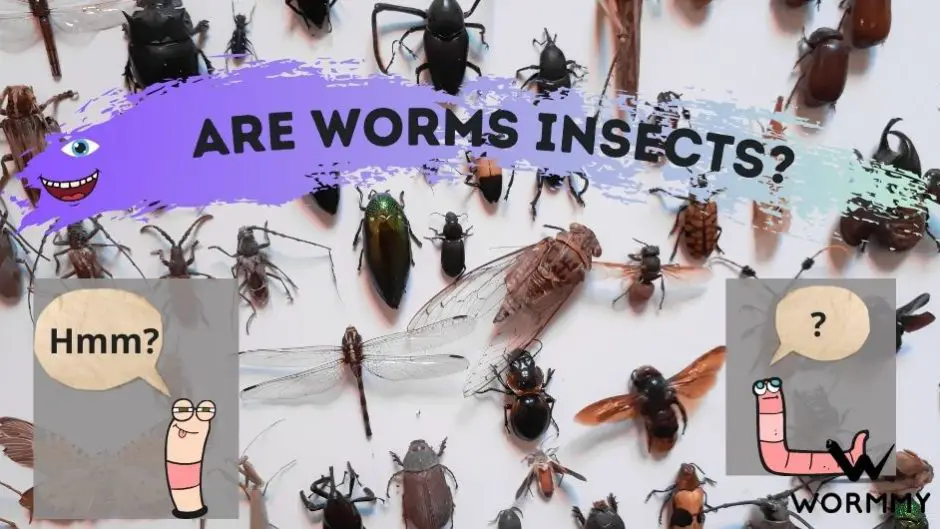Let’s cut to the chase, folks. If you’ve ever wondered, “Are worms insects?” then you’ve landed in the right place. This question has sparked debates among nature enthusiasts, scientists, and even curious kids who love digging in the dirt. Worms are everywhere—literally. They’re in your garden, under rocks, and sometimes even in your compost bin. But are they insects? Let’s find out.
Now, here’s the deal. Worms are often mistaken for insects because of their small size and simple body structure. But let’s not confuse size with classification. Worms and insects belong to completely different branches of the animal kingdom. Stick around, and we’ll break it down for you in a way that’s easy to digest (pun intended).
Before we dive deep into the science, let’s set the record straight. Worms are not insects. They’re more closely related to creatures like jellyfish and sea cucumbers than they are to ants or butterflies. Crazy, right? But don’t worry, we’ll explain why this matters and why understanding the differences can change the way you think about these little critters.
What Are Worms, Really?
Alright, let’s start with the basics. Worms are fascinating creatures that belong to a group called annelids. This fancy word basically means they’re segmented worms. Think of them as nature’s recyclers. They break down organic matter, aerate the soil, and keep ecosystems healthy. But here’s the kicker—they’re not insects.
Worms come in all shapes and sizes. From the tiny earthworms in your backyard to the massive marine worms lurking in the ocean depths, these creatures play a vital role in our planet’s health. But their biology sets them apart from insects in a big way.
Key Characteristics of Worms
Here’s a quick rundown of what makes worms unique:
- No legs—worms move by contracting their muscles.
- They have a simple digestive system that processes organic matter.
- Most worms are hermaphrodites, meaning they have both male and female reproductive organs.
- They lack a backbone, which classifies them as invertebrates.
So, when someone asks, “Are worms insects?” you can confidently say no. Worms belong to their own category, and they’ve been doing their thing for millions of years.
Are Worms Insects? Breaking Down the Misconception
Let’s get one thing straight. Worms and insects are not the same thing. Insects belong to the phylum Arthropoda, which means they have jointed legs, an exoskeleton, and three main body parts: head, thorax, and abdomen. Worms, on the other hand, belong to the phylum Annelida, and they don’t have any of these features.
Think about it this way. Insects are built for mobility. They have wings, legs, and antennae to help them navigate the world. Worms, however, are built for burrowing. Their elongated bodies are perfect for digging through soil or slithering through water. It’s like comparing a Ferrari to a submarine—both are cool, but they serve completely different purposes.
Why the Confusion?
The confusion arises because worms and insects are both small creatures that live in similar environments. You’ll often find both in gardens, forests, and even your kitchen trash. But just because they share a habitat doesn’t mean they’re related.
Another reason for the mix-up is the way we talk about worms. We use the word “worm” loosely to describe all kinds of creepy-crawlies, from caterpillars to leeches. But in the scientific world, worms are a distinct group with their own set of characteristics.
The Science Behind Worm Classification
Now, let’s get into the nitty-gritty. Worms are classified based on their physical traits and evolutionary history. Scientists use a system called taxonomy to organize living organisms into groups. Here’s how it works:
Phylum Annelida
Worms belong to the phylum Annelida, which includes earthworms, leeches, and marine worms. These creatures share a few key features:
- Segmented bodies that help with movement.
- Simple nervous systems that allow them to respond to stimuli.
- Specialized structures for reproduction and digestion.
On the other hand, insects belong to the phylum Arthropoda. This group includes spiders, crustaceans, and, of course, insects. Arthropods are known for their hard exoskeletons and jointed appendages.
Why Does It Matter?
Understanding the difference between worms and insects isn’t just about science class trivia. It’s about appreciating the diversity of life on our planet. Worms and insects play crucial roles in ecosystems, and they’ve evolved to fill specific niches. By recognizing their differences, we can better protect and preserve the environments they inhabit.
For example, earthworms are essential for healthy soil. They break down organic matter, improve drainage, and provide nutrients for plants. Insects, on the other hand, are pollinators, decomposers, and food sources for other animals. Both groups are vital, but they contribute in different ways.
Conservation Efforts
Knowing the difference between worms and insects can also inform conservation efforts. For instance, some species of earthworms are threatened by habitat loss and pollution. By understanding their unique needs, we can take steps to protect them.
Similarly, many insect populations are declining due to climate change and pesticide use. By studying their biology and behavior, we can develop strategies to support their survival.
Fun Facts About Worms
Let’s take a break from the science and dive into some fun facts about worms:
- Earthworms can regenerate lost segments, but only if the damage isn’t too severe.
- Marine worms have colorful, feathery appendages that help them breathe underwater.
- Some species of worms can grow up to 22 feet long!
- Worms don’t have eyes, but they can sense light and dark.
These little critters are full of surprises. Who knew that something so simple could be so fascinating?
Myths About Worms
There are plenty of myths surrounding worms, and some of them are downright weird. Here are a few of the most common:
- Myth: Cutting a worm in half creates two new worms.
Fact: Only the part with the head can survive and regenerate. - Myth: Worms come out during rain because they drown.
Fact: They actually emerge to move around more easily and find mates.
So the next time you see a worm wriggling on the sidewalk, remember—it’s not drowning. It’s just looking for love.
How Worms Impact Our Lives
Worms may be small, but they pack a big punch when it comes to their impact on the environment. From agriculture to waste management, these creatures play a critical role in keeping our planet healthy.
Worm Composting
One of the coolest things about worms is their ability to turn food waste into nutrient-rich compost. This process, known as vermicomposting, is a game-changer for gardeners and environmentalists alike. By using worms to break down organic matter, we can reduce landfill waste and create fertile soil for plants.
Here’s how it works:
- Add food scraps to a worm bin.
- Let the worms munch on the scraps and turn them into compost.
- Use the compost to enrich your garden soil.
It’s a win-win for everyone (well, except the food scraps).
Conclusion
So, are worms insects? The answer is a resounding no. Worms and insects are two distinct groups with their own unique characteristics and roles in the ecosystem. By understanding the differences, we can appreciate the diversity of life on our planet and take steps to protect it.
Here’s a quick recap of what we’ve learned:
- Worms belong to the phylum Annelida, while insects belong to the phylum Arthropoda.
- Worms have segmented bodies and no legs, while insects have jointed legs and exoskeletons.
- Both groups are vital to ecosystems, but they contribute in different ways.
Now it’s your turn. Leave a comment below and let us know what you think. Do you have any worm-related questions or stories? Share them with us! And if you enjoyed this article, don’t forget to share it with your friends. Together, we can spread the word about these amazing creatures.
Table of Contents


